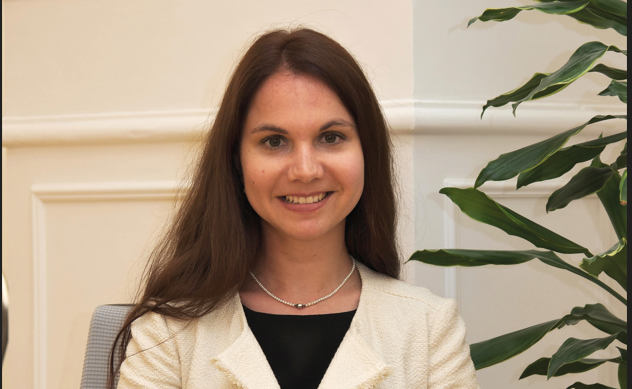What happens when this type of abuse occurs? We talk to expert Katharina Anna Fuchs who illustrates the consequences for the victims, describes the profiles of perpetrators and gives tips on how to prevent it

Photo by Neue Stadt
“Mental” and “spiritual” abuse: what does that mean?
Fuchs: There is still no agreement on a clear definition of spiritual abuse. When someone exerts a controlling, manipulating or intimidating influence on a person or group that they accompany or for which they have responsibility, we can speak of “mental abuse.”
It can occur anywhere where someone has power over others. This can affect relationships in the therapeutic field, but also in the educational field.
“Spiritual abuse” differs in particular in that it occurs in a religious context, and thus it also affects spiritual content.
How does spiritual abuse happen?
Similar to other forms of abuse, abuse of power and trust play a central role. Controlling the behavior of other people, intimidating and dominating them can be done through manipulation, for example, by a spiritual director or a leader of a faith or religious community posing as a mouthpiece of God and being seen as such by the person being accompanied.
The accompanying person can try to influence the interpretation of Holy Scriptures or spiritual texts by misinterpreting passages. We read in Matthew 18:3, “Unless you change and become like children, you will never enter the kingdom of heaven.” If that is taken out of context and out of its time, one can understand it to mean that people should always remain dependent on other people, not really growing up, not supposed to take responsibility.
A sign of spiritual abuse can be when a spiritual guide or responsible person expects absolute obedience. When this is linked to high ideals, it can easily lead to humiliation. This reduces self-esteem and increases self-doubt among those affected.
Further, isolation can accompany spiritual abuse by requiring one to stay away from family, friends or coworkers. An elite, insider-outsider mentality is created. The companion or group is special, better; others might not understand this or would not do the person or group any good, and would hinder them on their way.
Are there individuals who are more susceptible to spiritual abuse?
As a matter of fact, most of the time they are people who are new to the faith or who have only recently felt a calling, people who are looking for stability and meaning, who are going through a life crisis or need help because they have to make an important decision.
People who are emotionally unstable or even “broken” are at risk. Another risk factor is having experienced other forms of abuse, such as physical, emotional, psychological or sexual abuse.
What are the consequences of spiritual abuse for a person?
That depends on his or her personality, and the duration, type and intensity of the abuse. Symptoms and consequences can appear immediately, or only in the medium or long term. I distinguish six levels.
On the physical level, there is often diffuse pain: severe tension, headaches or back pain. The person may struggle with tremors, sweat profusely or generally feel weak and drained.
On the psychological level, the consequences are low self-esteem, insecurity and a negative self-image. Those affected find it difficult to be happy without worries. In the medium and long term, it can lead to anxiety disorders, sleep disorders, depression, addictions and even attempted suicide.
On a psycho-social level, loss of trust, distrust, isolation and relationship problems can show up.
On the emotional level, feelings of guilt or shame are common, as well as a sense of powerlessness and hopelessness. Anxiety, sadness, loneliness, but also anger or rage can spread.
At the cognitive level—mind and intellect—those affected may have problems with thinking critically and questioning, making decisions or making plans for the future.
And finally there is the spiritual level, the most important in this context. Spiritual abuse can wreak havoc on and even destroy faith, the image of the Church, the image of God and the relationship with God.
Victims could ask themselves: What kind of God is this? Why didn’t he intervene? Why could I be used on his behalf?
Can outsiders or members of a community recognize spiritual abuse?
Outsiders do! Red flags can be that a person becomes increasingly isolated or breaks off contact; that everything revolves around the community, its leader or spiritual guide, and what else happens or happened before in life no longer matters. Outsiders can have the feeling that the person has absolutely no idea why they are doing what they are doing.
If he or she is plagued by feelings of inadequacy, shame, guilt and lacks self-esteem, or if he or she can no longer make decisions independently, then you should take a closer look and intervene if necessary. It is more difficult for members of the same community, because they are part of the system and can no longer objectively see and question many processes, behaviors, etc.
If I suspect someone is a victim of spiritual abuse, how should I approach them?
If a person has been manipulated, controlled and isolated for a long period of time, it is very difficult to talk to them about it. If I speak to them directly, they will probably reply: “I feel called to do this; it’s my way. God wants that.”
Then it’s already something if you can keep in touch. Only when the person himself has questions and doubts, then you can try to help with a lot of tact.
Who are the perpetrators?
In many cases, people who represent an authority because of their position, age or experience. They can also have a certain charisma and present themselves well in public. What they say, what they do and how they do it is very attractive.
They often build up a relationship of dependency. This can happen slowly and gradually, so that at some point it seems normal to the victim, and they are not aware of this development.
There can be systems inside of communities that support for example clergy abuse without doing it intentionally, by negligence.
Perpetrators can be people with power, but they can also be people who cannot handle being in a position of power. Or they have experienced abuse themselves, got to know certain structures and behavior and do not even realize that they are part of it.
How can spiritual abuse be prevented?
There should be more awareness of the problem at all levels in the Catholic Church, from the bishops’ conferences and religious superiors to the individual parishes, religious communities and groups. The more the problem is recognized and receives attention, the more those affected feel encouraged to speak up. And the more mindful the environment can be.
In addition, during the selection, training and education for those who accompany others spiritually, it is necessary to take a closer look at who wants to do this service—to offer supervision, to check how it is going.
All of this can help to prevent unwanted developments, but also to support these people in a good, appropriate and healthy way. The establishment and recognition of new communities and movements should also be monitored more closely.
Those who lead a Bible study group, youth group or parish may be unsure whether they are doing the right thing. What is your advice?
On the one hand, communicate clearly and transparently to both the members of the group and to the outside world. Make it clear from the beginning what the goals and content are, the rules for treating each other.
Always ask yourself self-critically: Do I want to convince the group of my ideas? Does everyone have to think like me, or do I allow different approaches, different feelings? Do I accept suggestions and ideas, or do I cut them off? Do I allow criticism, or is nobody allowed to contradict me?
It’s important to make sure that I do not use what I know about individuals in other areas or influence their private lives, and do not interfere in professional or family matters without being asked for advice.
Asking questions of myself about my own management style, but also others who know me and for whom I am not responsible, who can answer me on an equal footing. Taking this into account reduces the risk of spiritual abuse.
Katharina Anna Fuchs has been a lecturer at the Institute for Psychology at the Pontifical Gregorian University in Rome since 2012, teaching and researching. She has been involved in the prevention of abuse for over 10 years, including working at the Center for Child Protection at the Pontifical Gregorian University (2012–2020). She is a member of several international and church advisory bodies dealing with abuse and its prevention, and has a doctorate in psychology. She studied in Eichstätt, Germany and Rome.
First published in Neue Stadt, Germany












